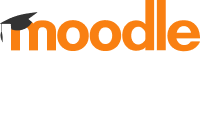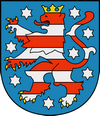Erasmus for Young Entrepreneurs
Do you have an ambition to set up your own business and would like to get ‘practical’ coaching from experienced entrepreneur from another EU country? Have you recently started a business and are seeking to gain insights into a different cultural and organisational setting? Or are you an experienced business person who owns or manages a small-medium enterprise and would like to bring some European flair and fresh ideas to your company? In all cases, the Erasmus for Young Entrepreneurs Programme could be the perfect choice for you!
Join us on the 6th of April from 10:00 to 13:00 at the office of Consorzio Arca, Viale delle Scienze, Edificio 16 – 90128 Palermo to find out more about Erasmus for Young Entrepreneurs Programme and opportunities! At the end of the morning a refreshment will be served.
The Kick-off meeting for the project SERCo – Social Entrepreneurship for Roma Communities took place on the 8th and 9th March 2016, hosted by the project partner FOUR ELEMENTS, in Athens, Greece. The Kick-off meeting brought together the project coordinator University of Piraeus Research Center (Greece), and the other partners: CESIE (Italy), ERIO – European Roma Information Office (Belgium), IDEA ROM Onlus (Italy), AMALIPE – Center for Interethnic Dialogue and Tolerance (Bulgaria), AEPMR – Association for Lifelong Learning in Rural Areas (Romania), FPC – Fundació Privada Pere Closa (Spain) and TMAF – Tolerance and Mutual Aid Foundation (Bulgaria).
What is culture? How do I feel when I interact with someone from a different culture? How can a teacher in early childhood education institutions better manage cultural differences?
These were some of the questions that the partners of the BODI project set off to answer to at the joint staff training event held in Paris, France, between February 15th-19th, 2016 to acquire the methodology of critical incidents, developed by social psychologist Margalit Cohen-Emerique, and overarching approach of the project.
The right of children to have their say in judicial procedures that affect them is stated by article 12 of the United Nations Convention on the Rights of the Child [UNCRC] and the CoE Convention on the Protection of children Against Sexual Exploitation and Sexual Abuse. The JudEx+ project promotes the improvement of procedures towards the involvement of children in making decisions in cases where they are directly or indirectly involved.
CAPE – Careers Advice and Pathways to Employment is a European Project co-funded by Erasmus+ Programme – Key Strategic Partnership 2 for vocational and educational training.
The CAPE consortium aims to share good practices from across Europe and across sectors (VET , second chance and informal learning) to ensure teachers, trainers and counselors have the necessary knowledge and skills to support young people to develop career management skills (CMS). CAPE will train teaching staffs, improve links with employers and develop resources to support and improve careers advice and guidance given to young people at risk of ESL.
EQUIL – Equality in Learning, which promotes the inclusion of people with mental health issue in labour market, is a project co-funded by the Erasmus+ Programme – Key Action 2 Strategic partnerships for Adult Education.
In the two years of project, partners will develop four training modules for practitioners with the aim to increase their skills for supporting people with mental health issue into work.
ALdia: removing barriers to education through accessible learning
On March 1st and 2nd, thee kick off meeting of the project ALdia – Accessible Learning design, implementation and accreditation was held in Alicante, Spain. The meeting was hosted by the University of Alicante, coordinator of the project, with the participation of the project partners: University of Piraeus Research Center (Greece), CESIE (Italy), Fondo Formacion Euskadi (Spain), Four Elements (Greece).
DISCO: 8 Young people do an internship in Germany
From the 28th February to the 9th March, a group of 8 young people coming from Palermo were given the opportunity to go to Mönchengladbach, Germany, in order to pursue a professional internship through a European project financed by the Erasmus + programme titled DISCO: Digital Second Chance Opportunities.
The project’s goal is to improve the quality of lifelong learning for adults and Second Chance schools, thereby promoting social inclusion of NEETs – Not engaged in Education, Employment or Training – , improving the quality of education and training and decreasing school drop-out.
Virtus: developing a virtual VET centre
The Kick-off meeting for the project Virtus- Virtual Vocational Education and Training took place on the 25th and 26th of February, 2016 hosted by the project coordinator EUROtraining, in Athens, Greece. The Kick-off meeting brought together EUROtraining with the 6 other partner organisations which include CESIE (Italy) European Progress (Greece); BEST Institute für berufsbezogene Weiterbildung und Personaltraining GmbH (Austria); FFE Fondo Formación Euskadi (Spain); ECQA – European Certification and Qualification Association (Austria); RTWH Rheinisch -Westfälische Technische Hochschule Aachen (Germany).
FETE: how to become youth ambassadors
From 6 to 12 of March, 16 young people coming from France, Italy, Denmark and Malta took part in an international course which the main aim was to provide participants useful tools to work with other young people with a migration background in their local communities. The participants acquired knowledge on the learning cycle of Kolb, that allowed participants to develop and to present ideas, workshops and future events in the migration field.
CARMA – Motivating students through collaborative learning
The Kick-off meeting for the project CARMA – RMA and other non-formal learning methods for Student Motivation took place on the 18th and 19th of February, 2016 hosted by the project coordinator CESIE in Palermo, Italy. The project launches an inclusive approach which fosters interaction, creativity and reciprocal learning between teachers and learners.
WAPPY – What’s APP Youth! Entrepreneurship skills through ICT
Training young people and youth workers in entrepreneurship through ICT-Mobile Application based mechanisms and non-formal methodologies is the goal of WAPPY!, a new Capacity Building for Youth project co-funded by Erasmus+. Through this project partners aim to understand the needs, content and accessibility issues surrounding young people participation in entrepreneurial trainings through ICT methodologies. The project with the help of Youth Workers, ICT Experts and young people themselves will be able to come up with concrete ideas how this may work.
STEP BY STEP, 1000 compliments to Cefalù!
1000, precisely 1003, are the households of Cefalù (province of Palermo – Italy) that at the date of 7th March 2016 have adhered to the project STEP BY STEP, funded by the Horizon 2020 programme. A significant result that makes the Norman city closer to reach the goal of having 1750 households registered.
Art and culture in adult education, Valuing non-formal and informal learning
Check out this short video about stage director Patrick Kreb’s experience in KA1 staff mobility through Erasmus+ programme. The actors in the video come from different backgrounds and are either homeless, or have serious mental health issues. Theatre provides them with a space to feel safe and a space where they can express themselves.
LangMOOCs: development of a MOOC for language learning
LangMOOCs – Language Massive Open Online Courses is a project co-funded by the Erasmus+ programme, KA2 Strategic Partnerships in the field of Adult education aiming to spread the use of Massive Open Online Courses for language learning in non-academic institutions.
The project partners Active Citizens Partnership (Coordinator – Greece), CESIE (Italy), Iberika education group gGmbH (Germany), Dacorum Council for Voluntary Service (United Kingdom) and Norwegian University of Science and Technology (Norway) met in Trondheim, Norway, on February 18th and 19th 2016 to discuss about the progress of the project and the development of the intellectual outputs.
SMART: preparation of the training module and handbook for teachers
SMART – Second Chance Schools working with systematic measurement of outcomes is a two-year project co-funded by the Erasmus+ Programme, Key Action 2 Strategic Partnership for Adult Education. The project aims to develop a quality framework, for use by providers of second chance education that will address the gaps, in order to help them evidence their success factors, enhancing the quality and relevance of learning offers in education, training and youth work.
Europe 50+ – It’s never too late to learn English and ICT
In the next days the ICT pilot course will start and take place at CESIE’s office, in the framework of Europe 50+ project, co-funded by Erasmus+ Programme, KA2 – Strategic partnership for adult education.
The participants of this course are going to be adult over 50 willing to improve their ICT skills or even being at their first approach with ITC items.
Translation internship at CESIE: make an experience in a multicultural office
Are you willing to do a work experience in translation in a multicultural and international context? Are you looking for an organisation where to carry out the internship envisaged by your University curriculum?
If you’re interested in translation and interpreting for NGOs and you want to cooperate with professionals coming from different countries, come and do a translation internship at CESIE!
Experiences
My “First Step” after the TC in Cyprus
My name is Giulia Mormino and from 8 to 15 of November 2015, I took part in a learning mobility project called “Coaching Young Entrepreneurs- Providing Support in Making the First Step” in Limassol, Cyprus. The project was hosted by DOREA Educational Institute WTF, in which CESIE was one of the partner.
CESIE
Via Roma, 94 - 90133, Palermo, Italy
Tel: +39 091 61 64 224 / Fax: +39 091 62 30 849
www.cesie.org















